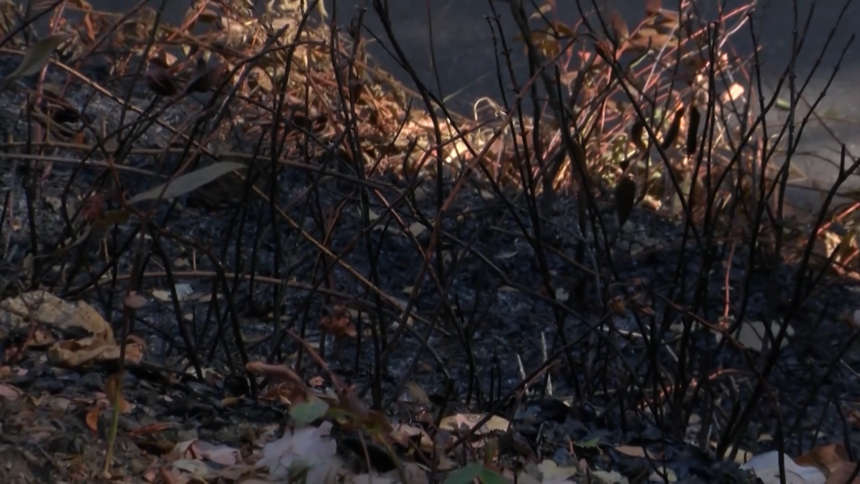Santa Cruz County residents warned to be prepared for debris flow heading into winter

SANTA CRUZ COUNTY, Calif. (KION) Heading into the winter months, it is not uncommon to see some heavy rain, but in the Santa Cruz Mountains, it is uncommon for the rainy season to follow a wildfire.
The deadly CZU Lightning Complex Fires scorched the Santa Cruz Mountains this year, leaving burn scars across the county. While the fires are gone, the chances for debris flow and mudslides are high.
"If they can go out and look at a slope that's burned, guess what, you're at risk," said Brian Garcia, a meteorologist with the National Weather Service.
More than 85,000 acres of land are left scarred from the fires, and all of that land could give out if enough rain falls on them in a short enough period of time.
"Probably the highest populated one is Boulder Creek- that 236 corridor," said Cal Fire CZU Dept. Chief Nate Armstrong. "Just because the terrain is so steep there, the drainages are steep. They did have a severe burn way up top along Empire Grade."
Santa Cruz County Sheriff's Office Public Information Officer Ashley Keehn says areas in dark blue are at the highest risk.
The thing about mudslides and debris flow is that they move fast and can be far more dangerous than people give them credit for.
"If you can hear a debris flow coming, it's already too late," Armstrong said.
In 2017, three people died in the Thomas Fire in Southern California, but winter rains came the following year.
"And they were messaging and messaging three days in advance. People didn't leave and they ended up having, I believe, 23 people killed in the debris flows," said Armstrong. "So far more than the fire, and they had three days worth of warning."
Moving into winter, the National Weather Service is planning to be more urgent with their flood alerts, making sure residents are prepared.
"Some of the areas out in the Santa Cruz Mountains may get a flash flood warning and might not see anything, but this is good. We want to be conservative, especially in the early season, issuing flash flood warnings for debris flow," Garcia said.
Armstrong added, "There's a possibility that this could happen quite a bit this winter, and people are going to get tired of evacuating. We understand that. It's called evacuation fatigue."
There is nothing we can do to stop the debris flows from happening- it is just Mother Nature at work- but we can control what we do leading up to our rainy season.
"Review your flood insurance, make sure you have an emergency kit with food and water, prescription medication," Keehn suggested.
So far, the Central Coast has seen light rains, which will help to heal the scars faster, but when heavier rain does approach this winter, make sure to pay attention to alerts and know your risk.
